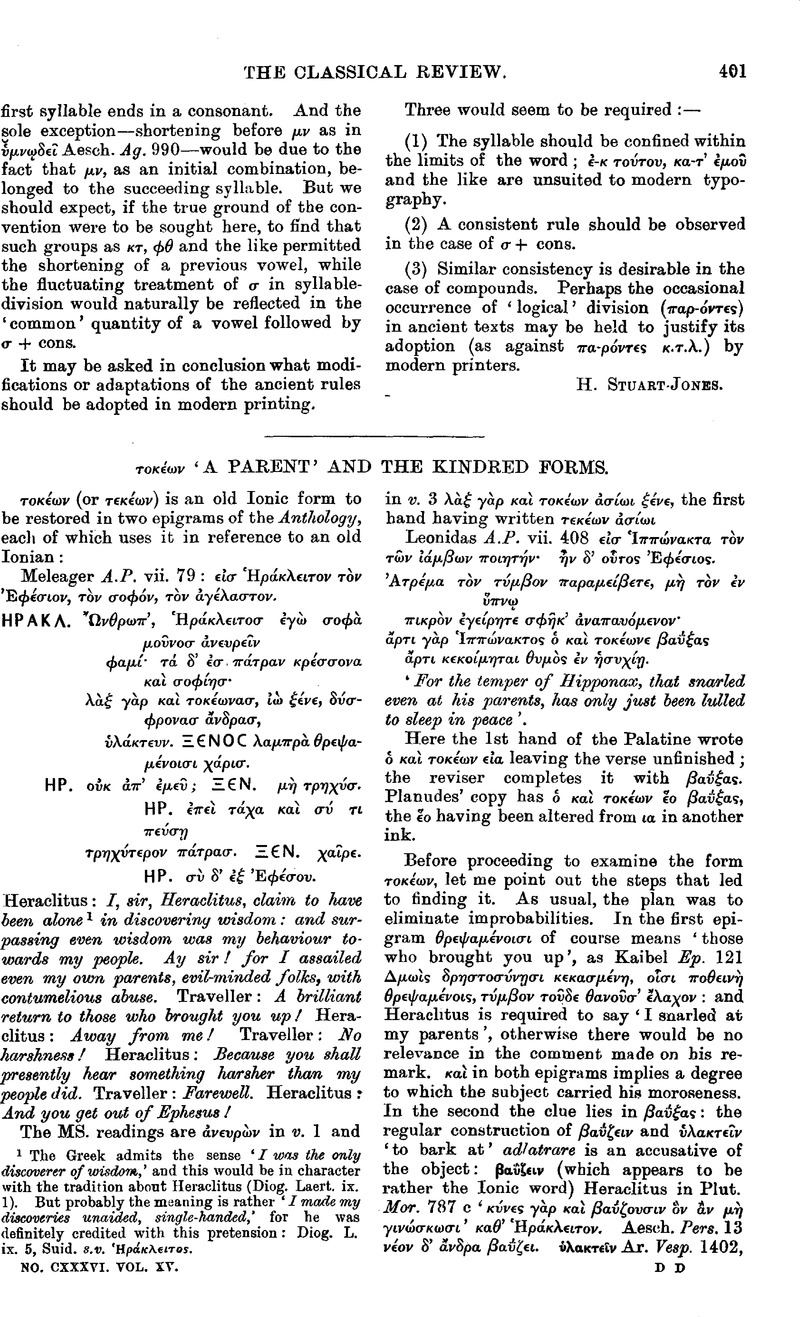No CrossRef data available.
Article contents
τοκων ‘A Parent’ and the Kindred Forms
Published online by Cambridge University Press: 27 October 2009
Abstract

- Type
- Original Contributions
- Information
- Copyright
- Copyright © The Classical Association 1901
References
page 401 note 1 The Greek admits the sense ‘ I was the only discoverer of wisdom,’ and this would be in character with the tradition about Heraclitus (Diog. Laert. ix. 1). But probably the meaning is rather ‘ I made my discoveries unaided, single-handed,’ for he was definitely credited with this pretension: Diog. L. ix. 5, Suid. s.v. Ἡρκλειτος.
page 402 note 1 Aesch. Theb. 899 ![]() .
.
page 403 note 1 Lentz Herodian I p. 19, II p. 724. For forms in -ν.-ν see I 12sqq., II 717 sqq., Lobeck Parall. 189 sqq.
page 403 note 2 Phot. s.v. ργενες p. 24 Naber, who says.β.
‘Codex γακλας ργωνας’: whence Suid.II p. 1150 has βακλας ργενας.
page 403 note 3 Not in the Thesaurus. Add to the Dictionaries ἰδμν Lentz Herorlian. I p. 13, 32.
page 404 note 1 The Ionic (προ)λεσχηνεεσθαι (Heraclit., Hippocr., Hdt.), implies a genitive λεσχηνος, though not necessarily a nominative λεσχν


